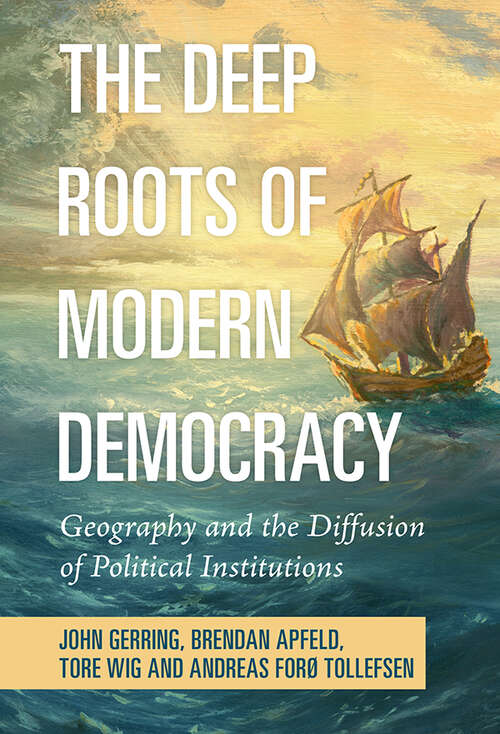The Deep Roots of Modern Democracy: Geography and the Diffusion of Political Institutions
By: and and and
Sign Up Now!
Already a Member? Log In
You must be logged into Bookshare to access this title.
Learn about membership options,
or view our freely available titles.
- Synopsis
- This book explores the deep roots of modern democracy, focusing on geography and long-term patterns of global diffusion. Its geographic argument centers on access to the sea, afforded by natural harbors which enhance the mobility of people, goods, capital, and ideas. The extraordinary connectivity of harbor regions thereby affected economic development, the structure of the military, statebuilding, and openness to the world – and, through these pathways, the development of representative democracy. The authors' second argument focuses on the global diffusion of representative democracy. Beginning around 1500, Europeans started to populate distant places abroad. Where Europeans were numerous they established some form of representative democracy, often with restrictions limiting suffrage to those of European heritage. Where they were in the minority, Europeans were more reticent about popular rule and often actively resisted democratization. Where Europeans were entirely absent, the concept of representative democracy was unfamiliar and its practice undeveloped.
- Copyright:
- 2022
Book Details
- Book Quality:
- Publisher Quality
- ISBN-13:
- 9781009121057
- Related ISBNs:
- 9781009100373
- Publisher:
- Cambridge University Press
- Date of Addition:
- 09/06/22
- Copyrighted By:
- John Gerring, Brendan Apfeld, Tore Wig, and Andreas Forø Tollefsen
- Adult content:
- No
- Language:
- English
- Has Image Descriptions:
- No
- Categories:
- Nonfiction, Politics and Government
- Submitted By:
- Bookshare Staff
- Usage Restrictions:
- This is a copyrighted book.
Reviews
Other Books
- by John Gerring
- by Tore Wig
- by Brendan Apfeld
- by Andreas Forø Tollefsen
- in Nonfiction
- in Politics and Government
